Rey, a Modern Languages with English student, has kindly written this post about the recent Lunar New Year celebrations he has shared with fellow Chinese international students. Personally, I found it really interesting – the background, the food, the celebrations. Thank you for sharing with us, Rey! (Ed)
Sunday 22 January 2023 was this year’s Lunar New Year. It is the Year of the Rabbit. As an international student in Birmingham, this is the second time that I have spent my country’s most important festival here in Birmingham.
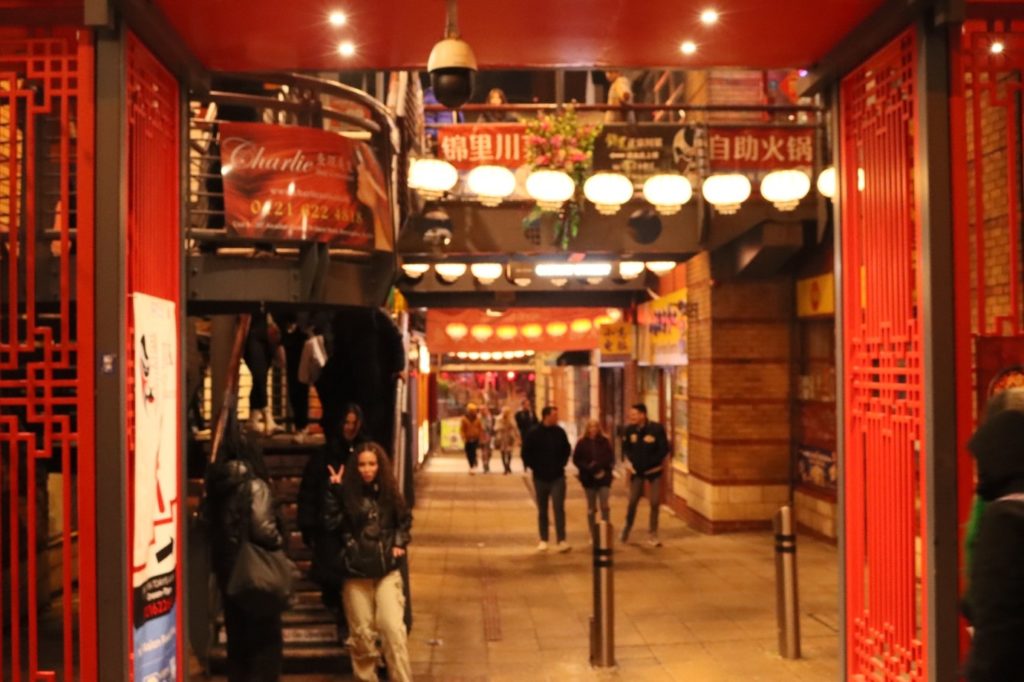
Family reunions and family New Year’s Eve feasts are at the heart of the Lunar New Year. I have found that Western festivals are associated with religion. China, however, places special emphasis on the idea of home. In China, many people do not believe in religion, but will especially believe in their ancestors and respect for their elders. So, on this day, I had a long video call with my parents and grandparents to ask about their life, they also told me that they went to their parents’ old residence to pay respects to ancestors during the Chinese New Year days.
The New Year’s Eve dinner has its roots in the ancient rituals of the end of the year when the gods and ancestors were worshipped and then reunited for a meal. It is the highlight of the year and is not only colourful but also very meaningful. Before eating the meal, the gods and ancestors are worshipped, and the meal is served only after the worship ceremony is completed.
The New Year’s Eve feast also differs in the north and south of China. People in the north are used to eating dumplings on New Year’s Eve. In the south, we have a more varied diet and mostly cook fish for dinner.
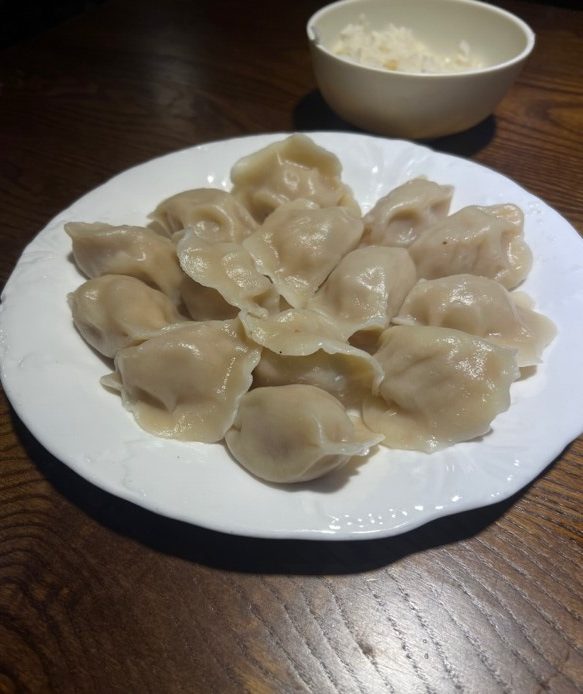

So we Chinese students, who cannot reunite with families due to the long distance, will have this special feast with our ‘chosen family’ – friends. My friend is from the north and I am from the south, so we went to a Chinese restaurant and had dumplings and fish. The dumplings signify yuanbao – the former currency. Fish (Yu) is pronounced the same as surplus or extra(Yu) and on New Year’s Eve we cook a very large fish dish – we might not finish it and then leave it for the first morning of the New Year, which means we have a lot of wealth left over from the past year.
In February 1992, Birmingham City Council granted permission for the construction of a street to serve the local Chinese community: Cathay Street. This area was home to a variety of Chinese restaurants, Chinese supermarkets and what was then a Chinese community centre. Starting from Cathay Street and ending with Essex Street, this area includes many east Asian communities. The Lunar New Year has also added to the vibrancy of the area.
My friends and I met here and saw lots of markets selling spring couplets and ‘Fu’(福) character scripts etc. The cultural performances here also attracted many Chinese students and locals to watch.
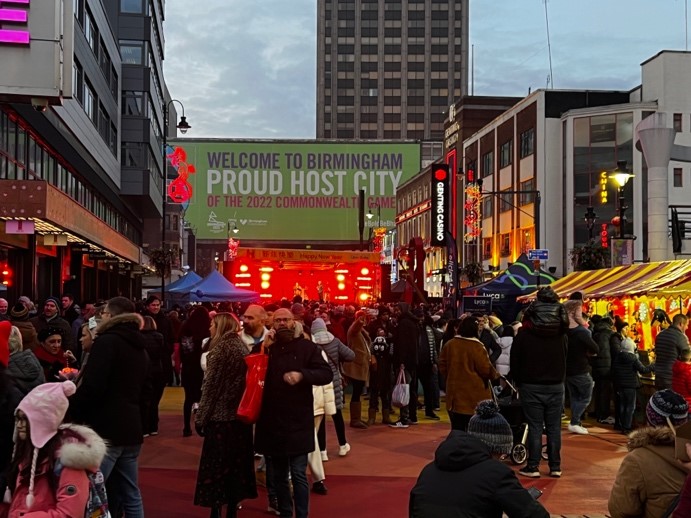
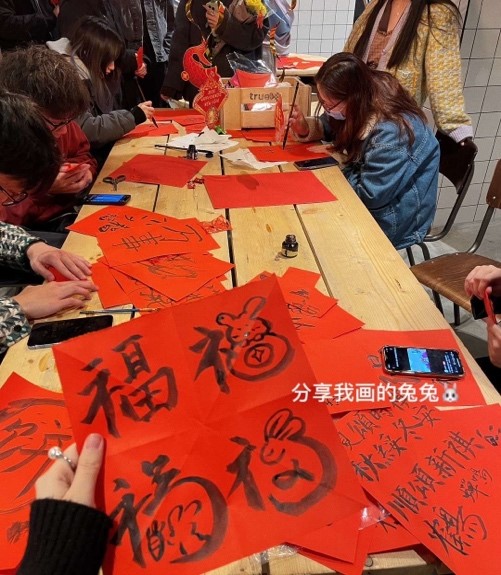
During the New Year celebrations, some families put large and small ‘Fu’(福) characters on the doors, walls and lintels of their houses meaning 福(fortune) has arrived at home. There are also a variety of folkloric designs made by the characters ‘Fu’(福).
Christine, a Chinese student studying EMFL in Modern Languages, infuses rabbit designs (above image) into the Chinese character as it is the Year of the Rabbit.
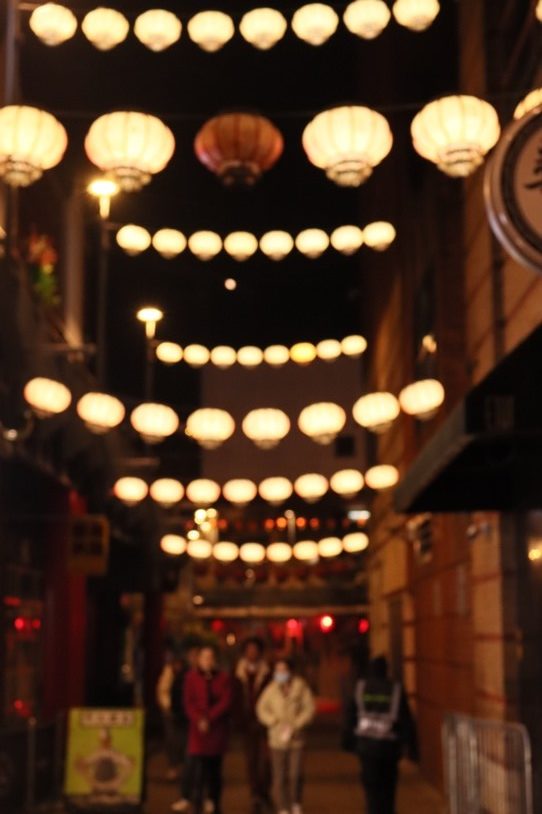
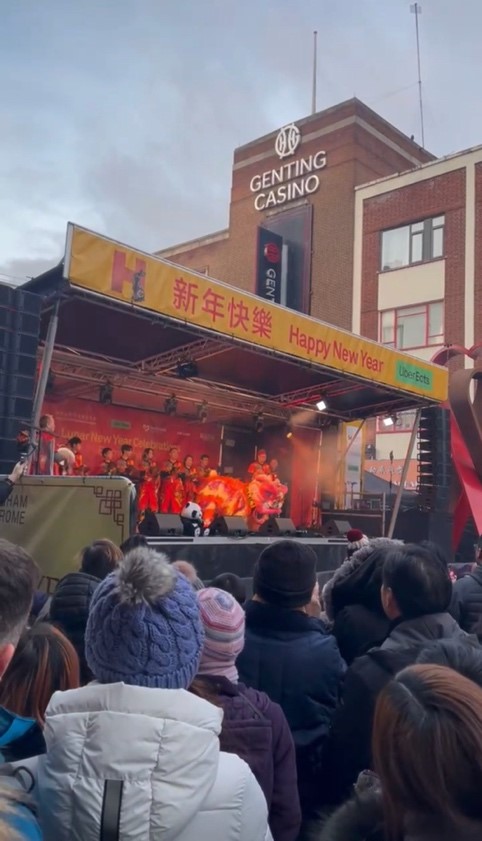

Join the discussion
0 people are already talking about this, why not let us know what you think?